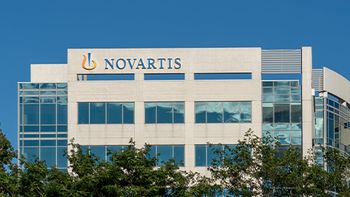
- Pharmaceutical Commerce - June 2021
- Volume 16
- Issue 2
Building a future pandemic blueprint
How the pharma serialization and track-and-trace sector can be better prepared, should the world be unlucky enough to experience another global crisis
The ongoing Covid-19 pandemic has shone a spotlight onto the vulnerability of the world in the face of a serious pandemic. On a human front, it has caused hundreds of thousands of deaths and has left people with life-changing disabilities and ongoing health problems. On an economic front, it has cost the globe multiple billions of dollars and has left people jobless and struggling to make ends meet.
With Covid-19 cases continuing to flare-up in some parts of the world, one of the worst feelings is that we cannot even be sure that the worst is over yet, even though the situation is looking a lot more positive in some parts of the world, thanks to the rollout and delivery of vaccines. So, why did this “Covid-19”, a name that most of us had never even heard of just 18 months ago, have such a devastating effect, one which has touched every single one of us in one way or another?
Being unprepared
One of the overriding reasons for the global vulnerability seen over the past 18 months is a basic one. Most industries, governments and countries were simply not prepared for such a devastating pandemic that appeared seemingly out of nowhere.
The world was placed into lockdown to limit the spread of the SARS-CoV-2 virus, but this led to major logistical issues. Problems with sourcing the quality and quantity of supplies needed, and ongoing problems with getting them distributed across the globe, are still being experienced now.
This has led to a green light from the counterfeiters, ever ready to chance their luck and make a quick profit from the misery of others, people desperate to protect themselves against the virus. As recently as February, there were 3,000 fake vials of Covid vaccine seized in China, an operation resulting in the arrest of 80 people. With depressing predictability, I am confident this is just the tip of the iceberg, with further fake vaccines being produced across the world at this very moment in time.
Therefore, what should we—the serialization and track- and-trace sector specifically and the pharmaceutical sector more widely—do now to establish a blueprint for the future? While we might not be able to prevent another virus, or obliterate it, what can we do to ensure we are a much tighter, much more cohesive unit to do battle in the years ahead?
The continued repatriation of supply chains
One of the major issues highlighted by the pandemic was the fact the world had become overly reliant on just one geography—namely China—for the supply of medication and medical equipment. Not only did this cause a damaging bottleneck, placing an inordinate amount of stress on the rigid supply chains connected with Chinese production, it placed an unrealistic demand on resources. While China is, of course, a major global pharmaceutical producer, even it was finding it tough to supply the rest of the planet through its established, rigid supply-chain.
Fast-forward to today, and while there is a still an overwhelming reliance on geographies such as China for the supply of much of the globe’s medication, the Covid pandemic has seen this pattern starting to shift.
We are now experiencing a move toward local production and sourcing through the repatriation of supply chains into Europe and the US. This repatriation is a big deal for the future of the pharmaceutical sector. It signals confidence in the capabilities of Europe, resulting in ongoing investment into the continent. This will result in job creation and a renewed interest in the brand name of Europe as a global center to produce essential pharmaceuticals.
This will be of major importance, should the world need to spring into action again in the face of another pandemic. An agile supply chain, local sourcing, local production and various centers of production will mean we are in a much better state than we were just 18 months ago.
Continued track-and-trace cooperation
The advent of the coronavirus has highlighted the importance for product track and trace to work together, resulting in a supply chain that will minimize costs for pharma companies.
Indeed, we are already seeing the implementation of agile supply-chain regulation, which will require a strong industry-standard open interface and interoperability. To do this, the hardware and the software among different vendors needs to be much more aligned and work much closer together.
The importance of this cannot be overstated. To be able to track every single item, at every single stage of the process, from source to supply to consumer, is essential. To have complete, watertight confidence that products are the bone fide official ones, is an important step.
If we do everything possible to work together and pool resources to nip this in the bud now, we will all be in a much better shape should we witness another global outbreak that requires global cooperation to conquer.
Continued digital investment
The past 18 months have ensured the pharmaceutical industry has collectively reevaluated the technology it needs, versus the technology that was in place.
The technology driving actual serialization processes was, as would be expected, of the latest generation and latest specifications. However, in line with almost every other business sector across the globe, pharmaceutical serialization companies have also had to invest in systems that are conducive to complementing what is likely to become the new working norm.
With client meetings, team catch-ups and even signing valuable business deals now reliant on advanced technology, the sector has experienced a quiet, behind-the-scenes digital revolution over the past year, one which will place it in strong stead for the future. This trend must continue at full steam—we cannot take our foot off the gas. Whether we are in the office or in our kitchen at home because of lockdown, the technology must exist for us to spring into action, wherever we are.
All firms within pharmaceutical track and trace should treat environmental, social and corporate governance (ESG) as a cornerstone of their business to collectively benefit the entire supply chain.
Support of global ESG initiatives is an important step forward to stamping out the issue of fake drugs, whether these are fake Covid vaccines, or any other type of drug or piece of equipment.
The United Nations Sustainable Development Agenda, launched in 2015, is a clear example of moves that are being established to ensure a safer and more responsible world. All companies should be familiar with the contents of the charter and should be doing all they can to adhere to them for any future collective battle against a global pandemic.
Ready to mobilize
It is quite feasible that another pandemic could rise again. We might not want to think about it right now, but it remains a possibility. The overriding message I want to present is that we need to exist in a semi-standby mode from hereon in. While it is important to put the mechanics in place, such as continuing to foster a much more open, local supply chain, and continuing to invest in the necessary technology, it is essential we are ready to spring into action at short notice, even in the face of strict lockdowns and global shutdowns.
If we must treat the current crisis as a dress rehearsal, then so be it. Being prepared is half of the battle, and we have a duty to ensure it’s one we are all ready to fight together.
About the Author
Alf Goebel, CEO, Advanco
Articles in this issue
over 4 years ago
Pharmaceutical Commerce - June 2021 Issue (PDF)over 4 years ago
Building a better supply chainover 4 years ago
Staring down supply chain disruptionover 4 years ago
Automation for the peopleover 4 years ago
RFID on the rise again in pharmaover 4 years ago
People, production, and prioritiesover 4 years ago
The march to DSCSA interoperabilityover 4 years ago
Plan of attack for small company supplier negotiationsover 4 years ago
2021 Pharma Traceability Vendor Directoryover 4 years ago
Algorithms and accountabilityNewsletter
Stay ahead in the life sciences industry with Pharmaceutical Commerce, the latest news, trends, and strategies in drug distribution, commercialization, and market access.





